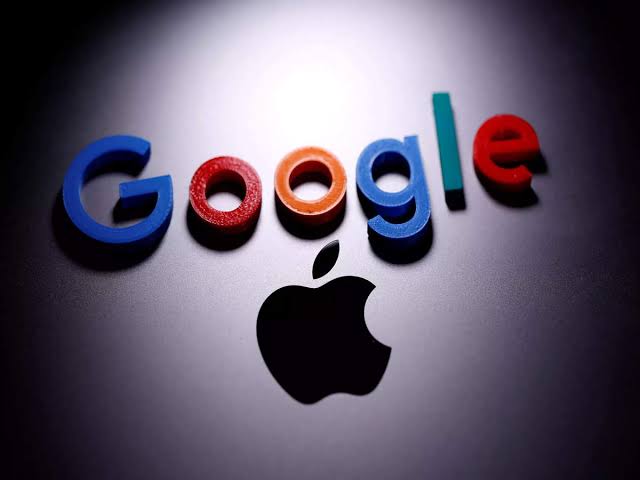Big Tech is facing its most serious test in decades, as antitrust regulators on both sides of the Atlantic hammer down on suspected anticompetitive activities that might result in breakup orders for Apple and Alphabet’s Google, a first for the industry.
This, in turn, may encourage watchdogs around the world to pile on, as indicated by the increasing number of antitrust investigations in various countries following the initiation of EU and US cases. Since AT&T’s breakup exactly 40 years ago, no firm in the United States has faced the prospect of a regulator-led breakup until today.
Google has stated that it disagrees with the EU’s charges, whilst Apple has stated that the US case is incorrect on both the facts and the law.
AT&T (T.N), commonly known as Ma Bell, was divided into seven autonomous corporations known as “Baby Bells” in 1984, resulting in one of the most formidable monopolies of the twentieth century. AT&T, Verizon, and Lumen are the only remaining companies.
Regulators now claim that corporations like Apple (AAPL.O) and Google (GOOGL.O) have developed impenetrable environments around their goods, making it difficult for users to move to competing services, resulting in the term “walled gardens.”
The United States Department of Justice cautioned Apple, a $2.7 trillion firm, on Wednesday that a break-up order is not out of the question as a remedy to restore competition after partnering with 15 states to sue the iPhone maker for monopolizing the smartphone market, stifling competitors, and inflating prices.
Nonetheless, the case, which Apple has vowed to fight, will most certainly take years to resolve.
The United States’ moves follow other rising threats in Europe this week.
Apple, Meta Platforms (META.O), opens new tab, and Alphabet are expected to be investigated for potential Digital Markets Act (DMA) violations, which could result in hefty fines and even break-up orders for repeated breaches, according to people with direct knowledge of the matter who spoke with Reuters on Thursday on the condition of anonymity.
Last year, EU antitrust commissioner Margrethe Vestager paved the ground for harsh measures by accusing Google of anti-competitive conduct in its money-making adtech division and stating that the company may have to offload its sell-side capabilities.
She stated that compelling Google to sell part of its assets appeared to be the only option to avoid conflicts of interest because it would prohibit Google from allegedly preferring its own online digital advertising technology services over advertisers and online publishers.
Vestager is anticipated to make a final ruling by the end of this year.
Andreas Schwab, a European Parliament legislator who was significantly involved in the formulation of new EU DMA tech legislation that went into effect this month, stated that MPs expect bold action against Big Tech companies that break the rules.
“If they don’t comply with the DMA, you can imagine what Parliament will ask for. Break-ups. The ultimate goal is to make markets open, fair and allow more innovation,” he said on Friday.
It is far from guaranteed that authorities will issue a break-up order as they consider their options, and any move could result in a fine.Legal experts have stated that the case against Apple, which is based on the 1998 case against Microsoft (MSFT.O), could be more challenging this time around.
“In the European Union, there is less of a tradition, with splitting a company seen as a last resort. It has never happened before,” said a Commission official, speaking on condition of anonymity.
According to lawyer Damien Geradin of Geradin Partners, who is representing multiple app developers in other cases against Apple, Apple’s heavily integrated system would make a break-up more difficult than Google’s.
“It seems to me much more complicated. You are talking about something that is integrated, for example you can’t force Apple to divest its App Store. That doesn’t make sense,” he said.
He believes it is preferable to impose behavioral remedies on Apple that require it to do particular things, but in the case of Google, a break-up order may merely target acquisitions undertaken to bolster its core services.
“What’s more likely is they (DOJ) go for remedies like opening up hardware functionality, or making sure developers aren’t being discriminated against in terms of pricing,” said Max von Thun, director of advocacy group Open Markets.
“I think they want to say that everything’s on the table, but it doesn’t necessarily mean they’ll choose that path,” he said.
Apple earns the majority of its over $400 billion in income each year from hardware sales (iPhones, Macs, iPads, and Watches), followed by its Services segment, which generates approximately $100 billion.Assimakis Komninos, a partner at legal firm White & Case, stated that structural remedies such as breakups will eventually be tried in court.
“I would say that experiences of imposed structural measures, such as breakups, are not many, but the small past experience shows that this is very tricky, aside from the formidable legal challenges,” he said.


